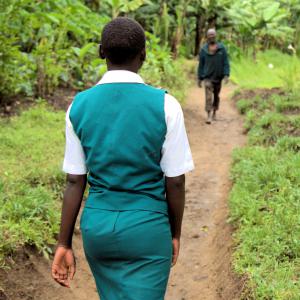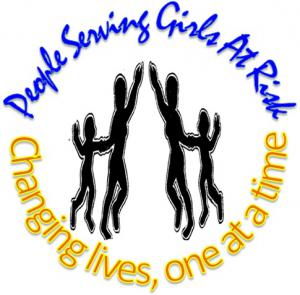Urgent action is needed to address Malawi's mounting sex trafficking problem
Facing huge obstacles to accessing justice and support, Malawi's sex trafficking victims are being failed by the system. Meanwhile perpetrators go unpunished.
Malawi is a source, destination, and transit country for sex trafficking, with traffickers often luring those who are vulnerable and living in poverty by promising to provide them with education and employment opportunities. Sexually exploited girls and women may be put to work as "bar girls" at local bars and rest houses, and then coerced to have sex with customers. Women and girls are also trafficked along major transport routes by truck drivers who falsely promise them schooling, marriage, and jobs in South Africa.
Such criminal activity generates high profits and comes with a low risk of being prosecuted.
Malawian NGO People Serving Girls at Risk (PSGR) and international women's rights organisation Equality Now is drawing attention to how girls are being disproportionately affected and many survivors are not receiving the support and justice they deserve.
Trafficking for sexual exploitation is the most common form of human trafficking globally and the criminal enterprise is worth nearly $99 billion USD each year. 96% of victims are women and girls, and worldwide almost 20% of all trafficking victims are children according to UNODC.
Malawi has enacted its Trafficking in Persons Act, 2015 to make provision for the prevention and elimination of trafficking in persons, and has mandated the creation of a Trafficking in Persons (TIP) Fund to support victims. However, there continues to be a lack of standardised procedures to effectively identify and refer individuals, or to provide them with adequate protection. Hence, few victims of trafficking receive justice through the legal system.
This is partly due to the TIP Fund not having been allocated a budget until May 2019, feeding a disjointed and inadequate victim protection system. There is also reported secrecy surrounding operationalisation of the fund, and who is benefiting from it. The Ministry of Homeland Security, which is entrusted with the responsibility of administering the Fund, has not openly disclosed how beneficiaries can apply for funding.
Victims of trafficking for sexual exploitation must overcome immense hurdles in order to reach court hearing - they must escape from their situation of exploitation, face blame and stigma when reporting their abuse, and find shelter, medical and psychosocial care to recover from physical, sexual and psychological violence.
Then survivors have to hope that the justice system will treat their case in a fair and timely manner, and their perpetrators will be punished appropriately.
Without a mechanism for being identified as a trafficking victim, when cases do reach prosecution it could be under other laws, such as the Penal Code or Child Care, Protection and Justice Act, some of which may carry a less severe penalty and provide for fewer avenues for victim support.
Although the Trafficking in Persons Act (2015) requires the Minister to designate premises to be made available as shelters for victims of trafficking in Malawi, there are few available, especially with the experience required to handle complex cases of Post Traumatic Stress Disorder (PTSD).
Victims who are minors have to be kept in orphanages or in police victim support units. In extreme cases, victims are kept in police cells, where there is no psychosocial support provided. This not only contravenes the law but compounds trauma.
PSGR is involved with various legal cases involving the sex trafficking of girls, including providing them with vital legal, psychosocial and moral support, and Equality Now assisting PSGR with its work.
One such case involves a woman who faces charges in Blantyre relating to keeping six girls, aged between 13 and 14, as sex slaves and setting them each a target of earning MK4000 a day (approx. $5.50 US) from prostitution.
PSGR and Equality Now are calling on the Government of Malawi to urgently address the following recommendations:
● Prosecute the full chain of sex traffickers, from recruiter to exploiter, under the 2015 law and appropriately sentence convicted traffickers, including government officials complicit in such crimes.
● Develop formal guidelines to identify trafficking victims, especially among vulnerable populations such as “bar girls”.
● Ensure victims are protected from further exploitation including prostitution, and refer them to available support services.
● Expand the availability of specialist shelters and protection services for victims, including by providing material and other forms of support to NGOs to enable them to increase direct service provisions. Enter lists of shelters for trafficking victims in the official gazette to facilitate the law being fully operational.
● Increase funding and support awareness raising and sensitivity training for judges, prosecutors, and police to identify, investigate, and prosecute trafficking crimes under the 2015 law.
About: People Serving Girls at Risk (PSGR) is a non-governmental organization based in Malawi fighting the exploitation of women and girls which are manifested in forms like trafficking, labour and commercial sexual exploitation. Twitter @PSGRBlantyre.
About: Equality Now is an international women’s rights organization that works to protect and promote the rights of women and girls around the world by combining grassroots activism with international, regional and national legal advocacy. Our international network of lawyers, activists, and supporters achieve legal and systemic change by holding governments responsible for enacting and enforcing laws and policies that end legal inequality, sex trafficking, sexual violence, and harmful practices such as child “marriage” and female genital mutilation. Twitter @equalitynow
Tara Carey
Equality Now
+44 7971 556340
email us here
Visit us on social media:
Facebook
Twitter
LinkedIn
Legal Disclaimer:
EIN Presswire provides this news content "as is" without warranty of any kind. We do not accept any responsibility or liability for the accuracy, content, images, videos, licenses, completeness, legality, or reliability of the information contained in this article. If you have any complaints or copyright issues related to this article, kindly contact the author above.



